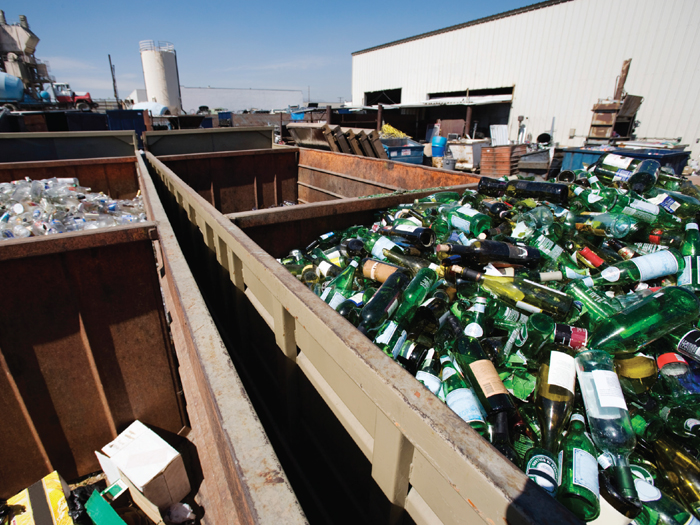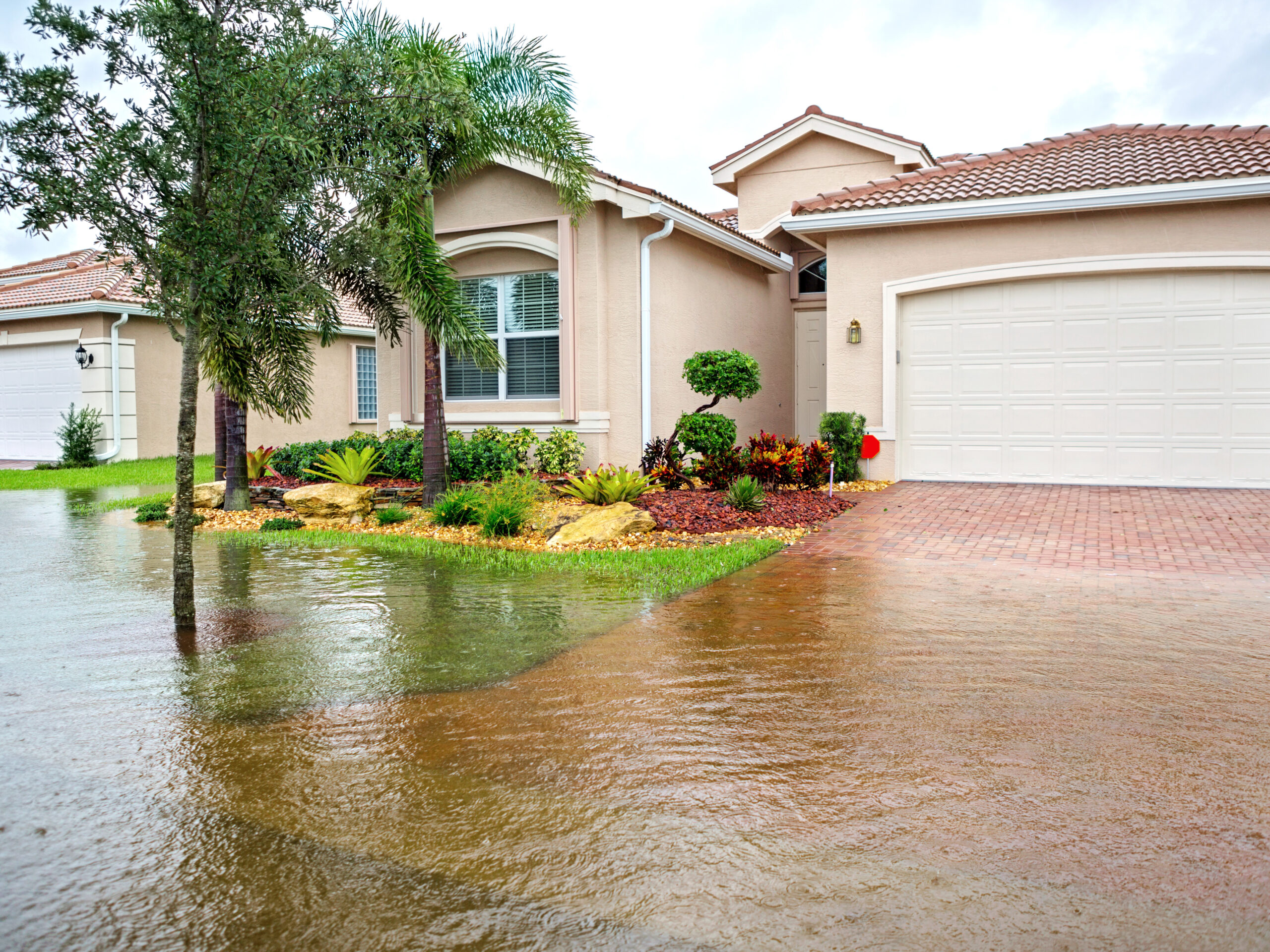Recycling Risks
Green But Not Clean

The recycling industry is poised to continue growing as humans put greater stress on the planet, and technology allows more efficient extraction of useful materials from spent products.
Although recycling may be green, the process is not clean, and it carries many of the same risks as other heavy industries, plus some additional pollution exposures.
Even as environmental laws and regulations grow more restrictive, many recyclers still underinsure their operations for pollution.
Typically, the recycling industry’s claims look like the claims affecting any heavy industry’s. The risks to recyclers of a product are similar to the manufacturer of that product, experts said.
“When a pollution claim hits, it hits big,” said Daniel Curran, director of underwriting for several of Willis’ environmental programs, including RecycleGuard.
Many recycling companies underestimate their environmental liability exposure and take a pass on the insurance.
Even so, the market for pollution insurance is a “sizable” $1 billion — a rough estimate, since hard numbers don’t exist, said Mary Ann Susavidge, environmental chief underwriting officer at XL Insurance.
The law requires more regulated companies, such as landfills and hazardous waste recyclers, to buy environmental insurance, while others, including “R2 certified” electronic recyclers, are contractually obliged to buy it.
There are also larger companies that see environmental insurance as true asset protection even if they are not required to purchase it.
Then, there are some less regulated companies, including paper and scrap recyclers, that tend to have operations of $5 million or less. Those companies often regard pollution coverage as a discretionary expense, experts said.
“Fifty percent of the accounts I look at gamble on their general liability covering an environmental spill, fire or contamination and they don’t protect their assets,” said Matt Gartner, assistant vice president of underwriting at XL Insurance.
“They don’t expect an incident, but bad things happen to good people,” he said.
Stacy Brown, president and managing partner of Freberg Environmental Insurance, recalled a small business with a large above-ground storage tank that dislodged during one of the increasingly frequent major floods on the East Coast.
“Fifty percent of the accounts I look at gamble on their general liability covering an environmental spill, fire or contamination and they don’t protect their assets.” — Matt Gartner, assistant vice president of underwriting, XL Insurance
The tank floated downstream, struck a tree and spilled five thousand gallons of oil into a river. Fortunately, the company had pollution insurance, which covered the million-dollar-plus remediation that would otherwise have forced it into bankruptcy.
Many insurance companies request an environmental audit to limit their losses to catastrophic “acts of God.”
When Brown underwrites a facility, he looks for the company’s degree of compliance with federal, state and local environmental laws. Even before he walks in the door, he looks at publicly available records, compliance histories, permits, and Google Earth, which shows the physical plant, stacks of recovered materials and above-ground storage tanks.
Regulations guide the underwriting process. If the company handles hazardous materials, are they stored in the proper tanks? Does it have a storm-water management plan? Where does it store used oil?
“I look at cleanliness. Housekeeping tells a lot about how a company is run,” Brown said. He looks at records, since companies may accumulate certain waste materials for only a certain time, and whether they’re filed neatly or jumbled in a desk drawer.
He interviews management to understand how tightly they run the facility and line workers to understand how they do their jobs. Are they draining fluids the right way?
The consultation with compliance experts is collaborative, not confrontational, he said.
Noncompliant companies eventually get shut down and expose themselves to expensive engineering remedies. They also suffer reputational loss, which can be as crippling as the cost of corrective action.
“It’s cheaper to stay in compliance,” Brown said.
Bad Company
And it’s cheaper to do business with compliant recyclers. Under Superfund Section 107, said Bill McElroy, senior vice president at Liberty International Underwriters, the chain of liability extends from material producers, through transporters, waste brokers, recyclers, and the people who buy the recovered materials.
For example, 255 defendants — mostly upstream industrial producers — were named in United States vs. Chemetco Inc. et al., in which a now-bankrupt recycler of copper-bearing scrap and manufacturing residue pleaded guilty in 2001 to violating the Clean Water Act by secretly installing a pipe that illegally dumped metal-filled wastewater into a creek for a decade.
The plaintiffs were fined $3.8 million, and the property is now a Superfund site.
Not only do upstream producers have liability under the Resource Conservation and Recovery Act (RCRA) for the misdeeds of the rare recycling “bad actor,” said Kim Ferraro, a senior staff attorney with the Hoosier Environmental Council, an Indiana environmental advocacy group, but so do responsible buyers of a site contaminated by previous owners.
Ferraro represented the plaintiffs in Adkins et al. vs. VIM Recycling, which couldn’t keep up with the volume of waste — engineered woods, plastics, steel, padding, drywall, etc. — from nearby recreational vehicle manufacturers in Elkhart, Ind.
The waste accumulated in 100-foot-high piles, Ferraro said, and rotted noxiously when exposed to the elements, sickening neighbors with its smell and dust emissions, and contaminating the groundwater.
When a spark ignited in a dirty grinder, the plant went up in flames, killing one worker and injuring another. VIM did not have the permits to do business legally, let alone pollution insurance, Ferraro said.
The RV producers whose waste VIM putatively recycled may have had liability under RCRA, which establishes responsibility for solid waste that creates endangerment. Ferraro considered naming them in the case, but finally did not.
The neighbors cheered when the court reached a default judgment against VIM, which failed to defend itself in court and went out of business.
The assets of the operation were purchased by Soil Solutions, which makes animal bedding and landscape mulch from recycled wood chips.
Although it obtained the proper permits and set up a responsible shop, said its attorney, Ed Sullivan, a partner with the international law firm of Faegre Baker Daniels, the company found itself hobbled by the hostility of the community, as well as lingering problems from VIM’s many failures to satisfy state standards.
Soil Solutions was added as a defendant to an existing class-action lawsuit claiming the operations were a nuisance and health hazard. As part of an out-of-court settlement, it agreed to process and remove many of VIM’s contaminants.
The settlement halts the litigation, and allows Soil Solutions to operate on the site for up to five years.
Lessons learned? Beyond complying with regulations, Ferraro said, it’s important to have cordial relations with the community. Legitimately listen and address the concerns of neighbors.
And second, she said, don’t buy a business that is being sued.
Sullivan agreed on the importance of good community relations. “My client tried to do that,” he said, “but the plaintiffs decided early that Soil Solutions was just like VIM.”
Any kind of environmental operation that creates odor, such as composting yard and waste processing, creates third-party liability and is fertile ground for plaintiffs’ attorneys — even if the operator does everything correctly and has all its permits, said Ken Cornell, executive vice president, chief environmental lines underwriter with Aspen Insurance
Plaintiffs’ attorneys may comb through regulatory databases and inspections for violations, even administrative errors such as posting the right notice in the right place.
“Good relations with your neighbors, and make darn sure your record is clean,” he advised. “Have a methodology for dealing with complaints up-front before the neighbors get attorneys.”












